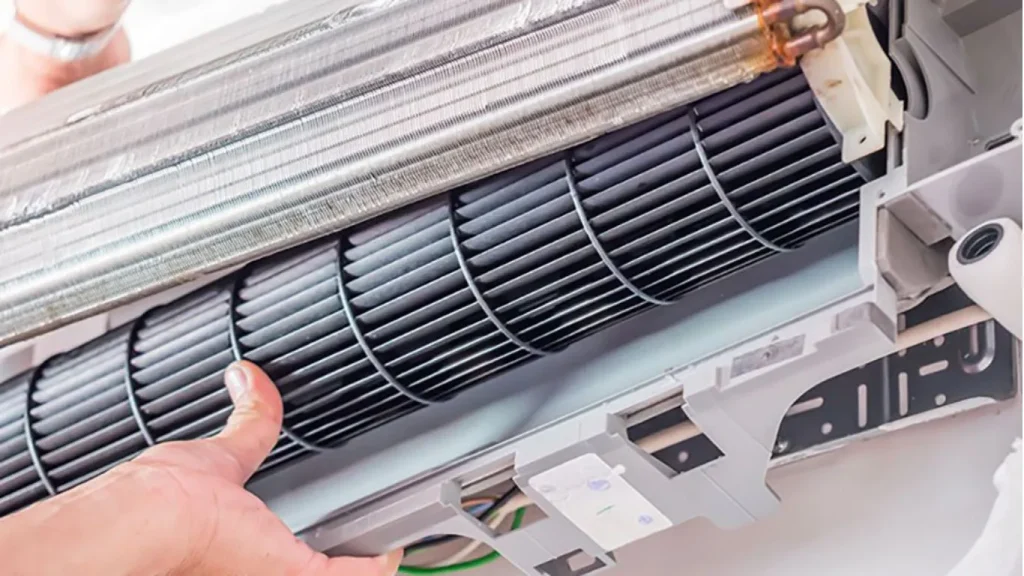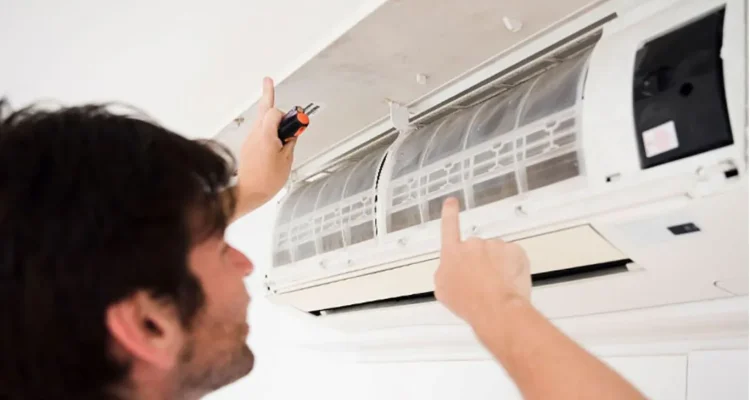Introduction
Have you ever walked into your home and been hit by a strange, gas-like odor coming from your air conditioning (AC) unit? It’s a concerning experience, and understandably so. An AC unit emitting a gas smell isn’t just unpleasant; it can also signal potentially serious issues that need immediate attention. In this article, we’ll dive deep into why your AC might smell like gas and what you should do about it.

Understanding AC Smells
Air conditioning systems, like any other appliance, can develop various odors over time. While some smells might be relatively harmless, others can be a cause for concern. A gas smell is particularly alarming because it can indicate a range of problems, from refrigerant leaks to mold or even electrical issues. Understanding the root cause of the smell is crucial for ensuring the safety and efficiency of your AC unit.
Possible Causes of Gas Smell in AC
Leaking Refrigerant
One of the most common reasons for a gas-like smell coming from your AC is a refrigerant leak.
What is Refrigerant?
Refrigerant is a vital component in your AC system that helps cool the air. It’s a chemical compound that transitions from a gas to a liquid and back, absorbing and releasing heat in the process. Common refrigerants include Freon (R-22) and the more environmentally friendly R-410A.
Signs of a Refrigerant Leak
- Hissing or bubbling sounds: These noises can indicate that refrigerant is escaping from the system.
- Reduced cooling efficiency: If your AC isn’t cooling as effectively as it used to, a refrigerant leak might be to blame.
- Ice build-up on the evaporator coils: This can happen when there’s insufficient refrigerant to absorb heat.
Gas Line Issues
If your AC unit uses natural gas, issues with the gas line can cause a gas smell.
How Gas Lines Work with AC Units
Some HVAC systems combine heating and cooling functions and may use natural gas as a fuel source for heating. While the cooling function typically doesn’t involve gas, issues with gas lines can sometimes be detected when the AC is running.
Identifying Gas Line Problems
- Persistent gas smell: Unlike other issues, a problem with the gas line often results in a consistent gas smell.
- Dead or dying plants: If you notice plants near your gas lines are dying, it could indicate a gas leak.
Mold and Mildew Build-Up
Sometimes, the smell of mold or mildew can be mistaken for gas.
How Mold Mimics Gas Smell
Mold and mildew can produce musty, earthy odors that some people perceive as similar to gas. This is especially common in environments with high humidity.
Preventing Mold in Your AC
- Regular cleaning: Keep your AC unit clean and dry to prevent mold growth.
- Use a dehumidifier: This can help reduce the moisture in the air, making it harder for mold to thrive.
Electrical Issues
Burning electrical components can sometimes produce a smell that might be mistaken for gas.
Burning Smell vs. Gas Smell
A burning smell usually indicates overheating or electrical faults, while a gas smell might be more chemical in nature. Both are serious and require immediate attention.
Diagnosing Electrical Problems
- Inspect for charred wires: Look for signs of burning or melting near the AC unit.
- Check the circuit breaker: A tripped breaker might indicate an electrical issue.
Health Risks of Gas Smell from AC
Potential Health Effects
Exposure to gas can have various health effects, ranging from mild to severe.
Symptoms of Gas Exposure
- Headaches: One of the most common symptoms.
- Nausea and dizziness: Prolonged exposure can cause these symptoms.
- Difficulty breathing: In extreme cases, gas exposure can lead to respiratory issues.
Immediate Steps to Take
Turn Off the AC
As soon as you notice a gas smell, turn off your AC unit to prevent further circulation of potentially harmful substances.
Ventilate Your Home
Open windows and doors to allow fresh air to circulate and help dissipate the smell.
Contact a Professional
Reach out to an HVAC professional or a gas company technician to inspect your unit and address any issues.
Preventative Measures
Regular Maintenance
Routine maintenance is crucial to keep your AC running smoothly and to prevent potential issues.
Checking for Leaks
Regularly inspect your AC unit for any signs of refrigerant or gas leaks.
Professional Inspections
Having a professional inspect your AC unit annually can help catch problems early before they become serious.
FAQs
1. What should I do if my AC smells like gas?
Turn off your AC immediately, ventilate your home, and contact a professional to inspect the unit.
2. Can a gas smell from my AC be dangerous?
Yes, a gas smell can indicate serious issues such as refrigerant leaks or gas line problems that pose health risks.
3. How often should I have my AC inspected?
It’s recommended to have your AC unit professionally inspected at least once a year.
4. What other smells from my AC should I be concerned about?
Be alert for smells like burning, mold, or musty odors, as these can also indicate underlying issues.
5. How can I prevent my AC from developing a gas smell?
Regular maintenance, checking for leaks, and professional inspections can help prevent your AC from developing a gas smell.
Conclusion
Dealing with a gas smell from your AC can be worrying, but understanding the potential causes and taking immediate action can help ensure your safety. From refrigerant leaks to gas line issues, mold, and electrical problems, it’s essential to address any concerns promptly. Regular maintenance and professional inspections are key to preventing such issues and keeping your home safe and comfortable.


Congratulation!